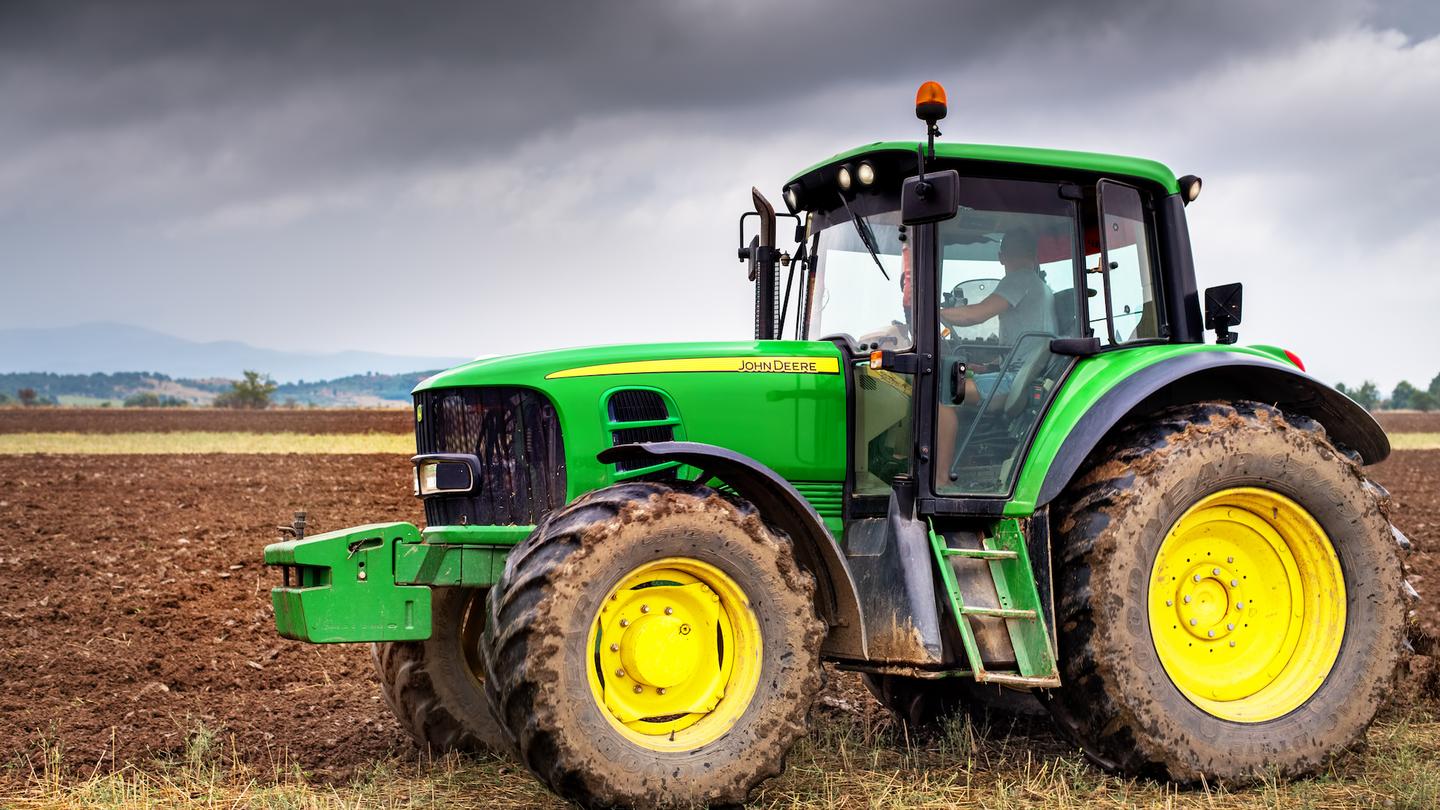Recently, the Motherboard blog on Vice.com reported on the extreme measures some US farmers are having to take to fix their John Deere tractors, namely downloading cracked software hosted in countries like the Ukraine and Poland.
From the article:
Tractor hacking is growing increasingly popular because John Deere and other manufacturers have made it impossible to perform “unauthorized” repair on farm equipment, which farmers see as an attack on their sovereignty and quite possibly an existential threat to their livelihood if their tractor breaks at an inopportune time.
“When crunch time comes and we break down, chances are we don’t have time to wait for a dealership employee to show up and fix it,” Danny Kluthe, a hog farmer in Nebraska, told his state legislature earlier this month. “Most all the new equipment [requires] a download [to fix].”
The nightmare scenario, and a fear I heard expressed over and over again in talking with farmers, is that John Deere could remotely shut down a tractor and there wouldn’t be anything a farmer could do about it.
The article goes on to describe a license agreement John Deere forced farmers to sign in 2016 October, which not only forbids the farmers from doing their own repairs but includes a covenant not to sue John Deere for “crop loss, lost profits, loss of goodwill, loss of use of equipment …arising from the performance or non-performance of any aspect of the software” running on the embedded systems in the tractors or other equipment. Basically, John Deere is saying “if our tractor breaks, it’s your problem, not ours, for the length of time it’s out of action.”
If this sounds like pure lunacy to you, you’re not alone. I would go as far as to call this one-sided agreement unconscionable. No judge worth his or her salt would possibly uphold such a blatantly lopsided agreement, especially given some of the rather exorbitant rates charged by John Deere: the article mentions $230 plus $130 an hour for a technician to drive out to a site and plug a connector into a USB port to “authorize” a repair done by an independent repair shop (which, of course, they could decline in theory). Given farms are by definition not going to be close to major cities or even larger towns where John Deere technicians are likely to live, a bill for such a service call could potentially cross the thousand-dollar mark.
So the farmers and independent repair shops say to hell with the license agreement and do the repairs in violation of it using cracked software from the Ukraine, Poland, and elsewhere. I can’t really blame them. And it’s possible that despite the license agreement, the repairs themselves may not be quite as unlawful as it first appears, though the acquisition of software intended for use only by “blessed” (i.e. authorized) John Deere technicians could still be against the letter of the law. In 2015 the Librarian of Congress approved an exemption to the Digital Millenium Copyright Act (DMCA) for land vehicles, which would include tractors and farm equipment. Curiously, around the time the exemption went into effect was when John Deere started requiring farmers to sign the license agreements.
One farmer modified his tractor to run on methane produced from pig manure, which I certainly applaud from an environmentalist standpoint. Who is John Deere to say that gasoline is a better fuel than the methane from pig shit (that would ordinarily be considered a waste product outright)? I would think most people (by which I mean non-stockholders in companies involved in the petroleum products trade) would agree that pig poop methane is a far better choice.
But the environmentalist side of me isn’t done. Toward the end of the story, there’s this quote:
“What happens in 20 years when there’s a new tractor out and John Deere doesn’t want to fix these anymore?” the farmer using Ukrainian software told me. “Are we supposed to throw the tractor in the garbage, or what?”
There’s one way to stop this, and it’s a “right to repair” law such as those already under consideration in five states: Nebraska, Minnesota, Kansas, Massachusetts, and New York, with a similar bill targeted more precisely at farm equipment in the works in Wyoming. The bills are modeled after a similar law already passed in Massachusetts targeting motor vehicles (but unfortunately, not including farm equipment it would appear).
Not surprisingly, John Deere is one of the opponents of this legislation, along with companies like Apple, which I have already written about at length on this blog. Gee, I wonder why? Maybe they fear the loss of an income stream built on robbing farmers (or hapless iPhone owners)?
This situation the farmers find themselves in is a large part of the reason why I fight for computing freedom and limit the amount of non-free software I use (and specifically why I do not run Windows on my PC and will never buy any Apple hardware, including Beats headphones).

